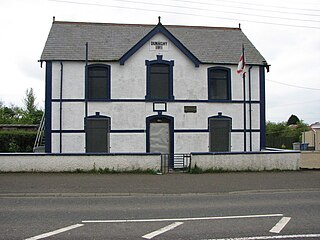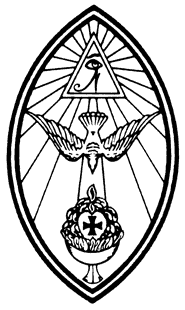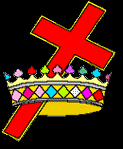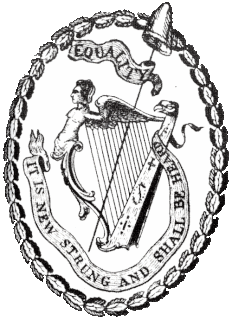 W
WThe Ancient Order of Hibernians is an Irish Catholic fraternal organization. Members must be male, Catholic, and either born in Ireland or of Irish descent. Its largest membership is now in the United States, where it was founded in New York City in 1836. Its name was adopted by groups of Irish immigrants in the United States, its purpose to act as guards to protect Catholic churches from anti-Catholic forces in the mid-19th century, and to assist Irish Catholic immigrants, especially those who faced discrimination or harsh coal mining working conditions. Many members in the coal mining area of Pennsylvania had a background with the Molly Maguires. It became an important focus of Irish American political activity.
 W
WThe Apprentice Boys of Derry is a Protestant fraternal society with a worldwide membership of over 10,000, founded in 1814 and based in the city of Derry, Northern Ireland. There are branches in Ulster and elsewhere in Ireland, Scotland, England, Australia and Toronto, Canada. The society aims to commemorate the 1689 Siege of Derry when Catholic James II of England and Ireland and VII of Scotland laid siege to the walled city, which was at the time a Protestant stronghold. Apprentice Boys parades once regularly led to virulent opposition from the city's Irish nationalist majority, but recently a more conciliatory approach has taken place and now the parades are virtually trouble-free. The 2014 'Shutting of the Gates' parade was described as "the biggest in years" and was violence-free.
 W
WThe Fenian Brotherhood was an Irish republican organisation founded in the United States in 1858 by John O'Mahony and Michael Doheny. It was a precursor to Clan na Gael, a sister organisation to the Irish Republican Brotherhood. Members were commonly known as "Fenians". O'Mahony, who was a Gaelic scholar, named his organisation after the Fianna, the legendary band of Irish warriors led by Fionn mac Cumhaill.
 W
WThe Hibernian Rifles was a marginal Irish nationalist militia that organised in Ireland in the early years of the 20th Century, having its Dublin Headquarters at 28, North Frederick Street. Its membership was exclusively Roman Catholic.
 W
WThe Independent Loyal Orange Institution is an offshoot of the Orange Institution, a Protestant fraternal organisation based in Northern Ireland. Initially pro-labour and supportive tenant rights and land reform, in returned over time to a more conservative, unionist position.
 W
WThe Molly Maguires were an Irish 19th-century secret society active in Ireland, Liverpool and parts of the Eastern United States, best known for their activism among Irish-American and Irish immigrant coal miners in Pennsylvania. After a series of often violent conflicts, twenty suspected members of the Molly Maguires were convicted of murder and other crimes and were executed by hanging in 1877 and 1878. This history remains part of local Pennsylvania lore and the actual facts much debated among historians.
 W
WOrdo Templi Orientis (O.T.O.) is an occult initiatory organization founded at the beginning of the 20th century. The origins of the O.T.O. can be traced back to the German-speaking occultists Carl Kellner, Heinrich Klein, Franz Hartmann and Theodor Reuss. English author and occultist Aleister Crowley is the best-known and most influential member of the order.
 W
WThe Peep o' Day Boys was an agrarian Protestant association in 18th-century Ireland. Originally noted as being an agrarian society around 1779–80, from 1785 it became the Protestant component of the sectarian conflict that emerged in County Armagh, their rivals being the Catholic Defenders. After the Battle of the Diamond in 1795, where an offshoot of the Peep o' Day Boys known as the Orange Boys defeated a force of Defenders, the Orange Order was instituted, and whilst repudiating the activities of the Peep o' Day Boys, they quickly superseded them. The Orange Order would blame the Peep o' Day Boys for "the Armagh outrages" that followed the battle.
 W
WRibbonism, whose supporters were usually called Ribbonmen, was a 19th-century popular movement of poor Catholics in Ireland. The movement was also known as Ribandism. The Ribbonmen were active against landlords and their agents, and opposed "Orangeism", the ideology of the Protestant Orange Order.
 W
WThe Royal Black Institution, the Imperial Grand Black Chapter Of The British Commonwealth, or simply the Black Institution, is a Protestant fraternal society though some scholars[who?] argue it is an Ulster syncretism of ritualistic Freemasonry.
 W
WThe Society of United Irishmen, also simply known as the United Irishmen, were a sworn society in the Kingdom of Ireland formed in the wake of the French Revolution to secure "an equal representation of all the people" in a "national government." Despairing of constitutional reform, in 1798 the United Irishmen instigated a republican insurrection in defiance of British Crown forces and of Irish sectarian division. Their suppression was a prelude to the abolition of the Protestant Ascendancy Parliament in Dublin and to Ireland's incorporation in a United Kingdom with Great Britain. An attempt to revive the movement and renew the insurrection following the Acts of Union was defeated in 1803.